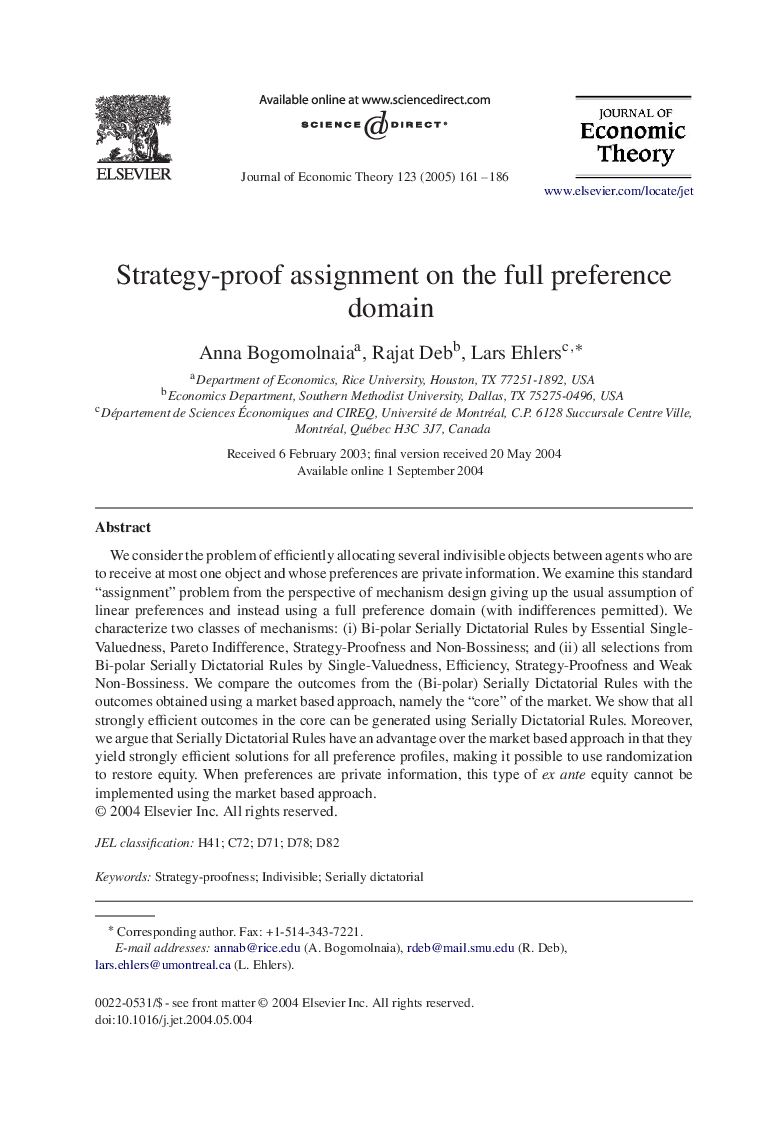| Article ID | Journal | Published Year | Pages | File Type |
|---|---|---|---|---|
| 10474833 | Journal of Economic Theory | 2005 | 26 Pages |
Abstract
We consider the problem of efficiently allocating several indivisible objects between agents who are to receive at most one object and whose preferences are private information. We examine this standard “assignment” problem from the perspective of mechanism design giving up the usual assumption of linear preferences and instead using a full preference domain (with indifferences permitted). We characterize two classes of mechanisms: (i) Bi-polar Serially Dictatorial Rules by Essential Single-Valuedness, Pareto Indifference, Strategy-Proofness and Non-Bossiness; and (ii) all selections from Bi-polar Serially Dictatorial Rules by Single-Valuedness, Efficiency, Strategy-Proofness and Weak Non-Bossiness. We compare the outcomes from the (Bi-polar) Serially Dictatorial Rules with the outcomes obtained using a market based approach, namely the “core” of the market. We show that all strongly efficient outcomes in the core can be generated using Serially Dictatorial Rules. Moreover, we argue that Serially Dictatorial Rules have an advantage over the market based approach in that they yield strongly efficient solutions for all preference profiles, making it possible to use randomization to restore equity. When preferences are private information, this type of ex ante equity cannot be implemented using the market based approach.
Related Topics
Social Sciences and Humanities
Economics, Econometrics and Finance
Economics and Econometrics
Authors
Anna Bogomolnaia, Rajat Deb, Lars Ehlers,
